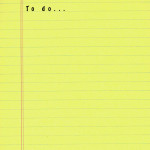We live in a busy world where we are frequently bombarded with information. It’s easy for us to be distracted from what we really want or need to be giving our attention. Here are five straight forward tips for filtering out the noise of every day life and becoming focused on what really matters.
Focusing on the Breath
Sometimes when we take on too much, we notice ourselves holding our breath. One of the best ways to bring our awareness into the present moment is through mindful breathing. Take slow, deep and deliberate breaths in and out while clearing the mind and relaxing completely. This helps to ground us back into the body instead of being overly concerned with thoughts about the past or future. It’s good to practice slowing down and concentrating on the breath for a minimum of 5 minutes a day. Then we can get back to whatever we were doing with more energy, presence and focus.
Limiting Unwanted Distractions
Social media is continually notifying us to log in to see what our friends, family and colleagues are doing. We also often set reminders for ourselves on our phones or calendars. Sometimes we get added to email lists that we never even signed up for. With all the advertising, popup windows and ringtones bombarding us every day it’s easy to become overwhelmed. Taking a few minutes a day to turn off annoying notifications, close browser tabs, turn off annoying ringtones etc. can buy us future peace of mind.
Prioritizing Our To Do List
Making a to do list is a great way to get more done, although it can also cause us to take on more than we can handle at once. A long list of tasks can cause us lose focus and get less done than if we were to simplify. The best way to simplify our list is to prioritize. Go down the list comparing the importance of just two items at a time. Then you can move list items up or down accordingly. Choose only three tasks to complete in a day. Keep it simple by narrowing it down to what will make you feel most accomplished that day. Checking items off the list is also a good practice. We must not forget to acknowledge ourselves for the hard work we do.
Practicing Time Management
Commit to doing one thing at a time. It’s tempting to multitask, although Earl Miller, a neuroscientist at MIT and one of the world experts on divided attention, says that our brains are “not wired to multitask well… When people think they’re multitasking, they’re actually just switching from one task to another very rapidly. And every time they do, there’s a cognitive cost in doing so.”¹ Did you know that the average person gets one interruption every eight minutes, or approximately seven an hour, or 50-60 per day. The average interruption takes five minutes, totaling about four hours or 50% of the average workday. 80% of those interruptions are typically rated as “little value” or “no value” creating approximately 3 hours of wasted time per day.²
 Removing Excess Clutter
Removing Excess Clutter
This is something that many people struggle with. If you’ve ever watched the TV show, Hoarders – Buried Alive, then you’ve seen some of the horror stories of people with homes full of garbage collected over the years. They are so attached to the most random stuff. Looking at the worst cases is rather disturbing and disgusting. Who wants to be that dysfunctional? At some point we have to ask ourselves is this serving me? Why am I holding on? If you have a really solid reason then great, although more often than not we come up with silly justifications to hold on to our junk. You can start small by letting go of one item per week. Sell it, give it away, recycle it or toss it. You will feel better, and then you will have more room for organizing the things that are truly important.
Sources:



